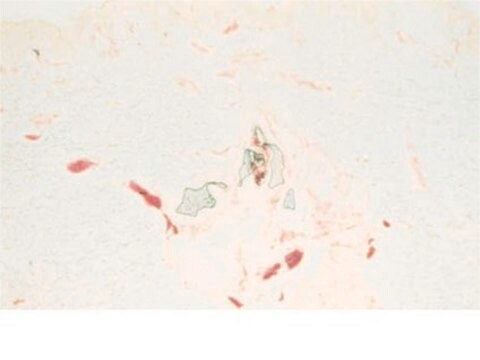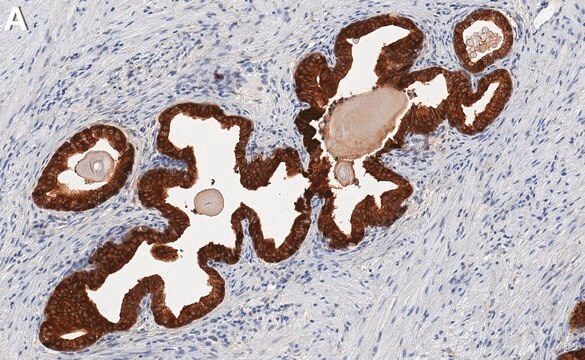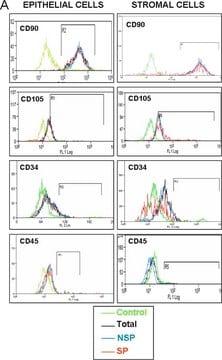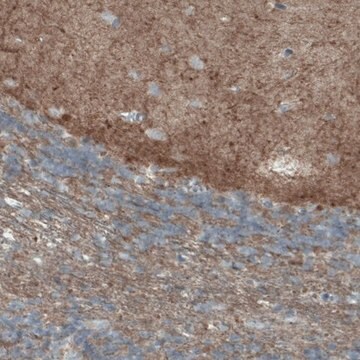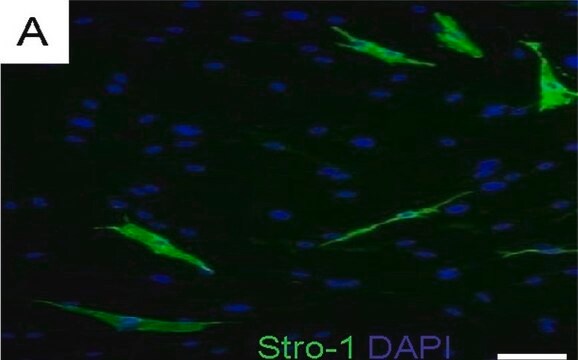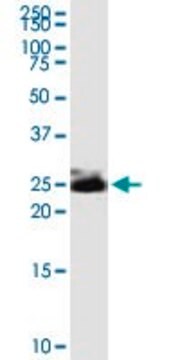CBL415
Anti-Thy-1 Antibody, clone F15-42-1
clone F15-42-1, Chemicon®, from mouse
Synonym(s):
CD90
About This Item
Recommended Products
biological source
mouse
Quality Level
antibody form
purified antibody
antibody product type
primary antibodies
clone
F15-42-1, monoclonal
species reactivity
human
manufacturer/tradename
Chemicon®
technique(s)
flow cytometry: suitable
immunohistochemistry: suitable
immunoprecipitation (IP): suitable
isotype
IgG1
NCBI accession no.
UniProt accession no.
shipped in
wet ice
Gene Information
human ... THY1(7070)
Related Categories
Specificity
Application
Studies of renal corticol fibroblasts in progressive renal disease.
Epitope is resistant to trypsin treatment used to release adherent cells from surfaces. Antibody not tested in fixed tissue.
Optimal working dilutions must be determined by the end user.
Linkage
Physical form
Legal Information
Not finding the right product?
Try our Product Selector Tool.
Storage Class Code
12 - Non Combustible Liquids
WGK
WGK 2
Flash Point(F)
Not applicable
Flash Point(C)
Not applicable
Certificates of Analysis (COA)
Search for Certificates of Analysis (COA) by entering the products Lot/Batch Number. Lot and Batch Numbers can be found on a product’s label following the words ‘Lot’ or ‘Batch’.
Already Own This Product?
Find documentation for the products that you have recently purchased in the Document Library.
Our team of scientists has experience in all areas of research including Life Science, Material Science, Chemical Synthesis, Chromatography, Analytical and many others.
Contact Technical Service


